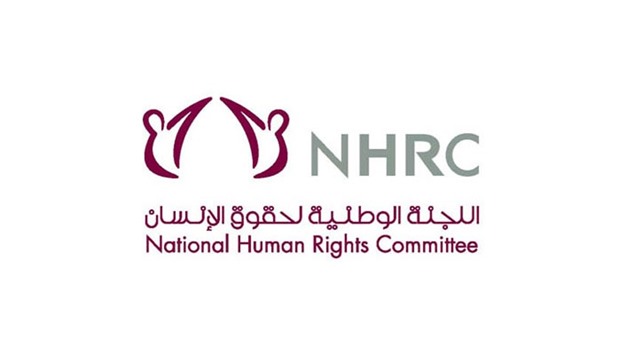The National Human Rights Committee (NHRC) has completed all arrangements to organise the Doha International Conference on "Social Media: Challenges and Ways of Supporting Freedoms and Protecting Activists", which will be held on February 16-17.
The conference is organised in partnership with the Office of the United Nations High Commissioner for Human Rights, the European Parliament, the Global Alliance of National Human Rights Institutions and the International Federation of Journalists.
HE the Chairman of the NHRC Dr Ali bin Smaikh al-Marri, noted that the conference will witness the participation of 300 governmental and non-governmental organisations, as well as journalists' unions, major companies and social networks, including Google, Facebook and Twitter as well as international celebrities and human rights defenders, media practitioners, international experts and representatives of the technology community, relevant special rapporteurs, chairpersons of United Nations treaty bodies, judges, lawyers and representatives of victims of social media activists will also participate, in addition to international and regional human rights mechanisms, national human rights institutions, research centers and other relevant bodies and organisations.
Dr al-Marri said in a press statement that the conference aims to discuss the opportunities created by social media to promote human rights, and explore the repeated forms of interference in the use of these means. The discussions will identify good practices and lessons to benefit from social media in realising human rights, explore the impact of online speech restrictions set by national laws and policies on journalists, human rights defenders, political activists and social media influencers, besides discussing the application of provisions on incitement to hate in practice and the use of social media platforms to incite and spread hate speech, including against religious minorities.
He pointed out that social media platforms have changed the prevailing concepts in the cultural, political and media communication in the world, and digital devices have become mobile newsrooms, and that there is no obscure access to the other easily, where the scope of opportunities for the exercise of fundamental rights and freedoms of expression and assembly association and participation in public life is unparalleled.
The rapid expansion of the digital communications infrastructure and the advancement of digital technology had brought about profound social change, posing challenges and opportunities for human rights and civic space, he added.
Dr al-Marri noted that the protection of human rights now and in the future is increasingly dependent on the ability to clarify how human rights principles are applied to social media, and to take advantage of those platforms, which have become an indispensable tool for realising a range of human rights and promoting economic and social development.
"New technologies and interdependence have helped the growth of civil society networks, including cross-border growth. However, the emergence of these new opportunities has been followed by emerging threats to civic space. At the same time, digital technologies have also created new excuses for governments to stifle social media activity and restrict civil space, often based on security pretexts," he said.
Over the years, governments and other groups struggling to assert their dominance in public debate have tried to interfere with social media in many different ways, Dr al-Marri said.
Since most social media platforms are private, technology companies also play a key role in responding to multiple requests from authorities and to a range of evolving legal and policy frameworks that regulate online expression, he added.
Dr al-Marri said that the conference will explore the possibility of harnessing social media to be an important tool to enhance the civil space or to spread hatred online, which may lead to acts of violence in normal life, so it has included many social media platforms in its terms and conditions a special ban on "hate speech". Some platforms have also recently updated their rules against hateful behavior to include language that deprives others of humanity on the basis of religion.
In the same context, he noted that the UN Special Rapporteur on freedom of religion or belief stressed that war begins in the minds and is fostered by the logic of what is fuelled by invocations, often hidden and hateful, and that positive talk is also a healing tool for reconciliation and peace-building in hearts and minds," Dr al-Marri noted.
He revealed some of the expected outcomes of the conference, including the development of mutual understanding among different stakeholders on the opportunities, risks and good practices to work to expand the civil space in and through social media, and develop ways to address the challenges and threats faced by activists on social media platforms, in addition to identifying future activities that will expand the civil space in social media, and forming a network for future co-operation and co-ordination that will address legislation, policies, regulatory tools or other initiatives to ensure taking advantage of the social media in human rights work, as well as the expansion of partnerships and capacities to address hate speech and incitement to discrimination in the means of social communication, leading to exit a set of good practices and lessons learned.

